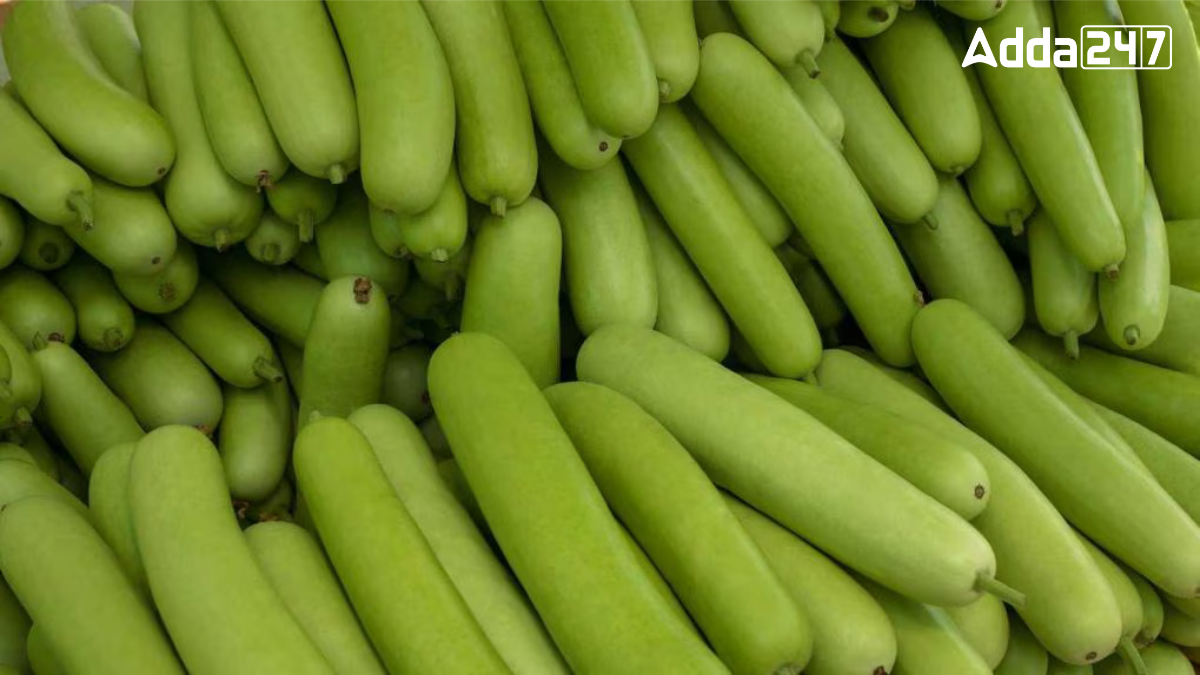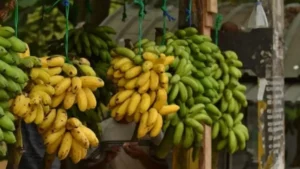Bottle gourd, known as “lauki” or “doodhi” in Hindi, is a nutritious and widely consumed vegetable in India. Uttar Pradesh stands out as the largest producer of bottle gourd in the country, thanks to its favorable climate and fertile soil. This article explores the factors contributing to Uttar Pradesh’s leading position in bottle gourd production and its significance in the state’s agriculture.
Bottle Gourd Production in India
Bottle gourd cultivation covers 1.58 million hectares, yielding 2.6 million hectares of produce. This area can be reduced when grown on rooftops, a common practice in the villages of Bihar and Uttar Pradesh. Rooftop cultivation not only saves space but also supports local farming in densely populated areas.
Largest Bottle Gourd Producing State in India
Bihar is the largest bottle gourd producing state in India, with an average production of around 3.5 lakh tons per year. Its high yields are due to favorable climatic conditions and fertile soil, making it ideal for cultivation. This significant production places Bihar among the top states in India for bottle gourd farming.
Climate and Soil Conditions
Bihar’s climate and soil are highly suitable for bottle gourd cultivation. The state has a tropical to subtropical climate, with hot summers and mild winters. The fertile alluvial soil of the Ganges plains, enriched with organic matter, provides the perfect environment for bottle gourd to thrive.
Major Bottle Gourd Producing Regions
Some of the key regions in Bihar that contribute to its bottle gourd production include:
- Patna: The capital city and its surrounding areas are known for high-quality bottle gourd cultivation.
- Muzaffarpur: This region is famous for its fertile land and favorable climate for growing bottle gourd.
- Bhagalpur: Known for its agricultural activities, Bhagalpur also plays a significant role in bottle gourd production.
Economic Impact
The large-scale production of bottle gourd in Bihar significantly contributes to the state’s economy. It provides employment opportunities to many farmers and workers involved in the cultivation, harvesting, and distribution processes. Additionally, bottle gourd farming supports related industries, such as seed supply and agricultural equipment manufacturing.
Challenges and Future Prospects
Despite its success, bottle gourd cultivation in Bihar faces several challenges:
- Pest and Disease Management: Farmers need to constantly manage pests and diseases that can affect the yield.
- Market Access: Ensuring that bottle gourd reaches markets in a fresh state requires efficient transportation and storage facilities.
- Climate Change: Changing weather patterns can impact the cultivation cycle and yield of bottle gourd.




 Which Lake is known as the Jewel of Udai...
Which Lake is known as the Jewel of Udai...
 Which is the Largest Banana Producing St...
Which is the Largest Banana Producing St...
 Which is the First Tiger Reserve of Utta...
Which is the First Tiger Reserve of Utta...








